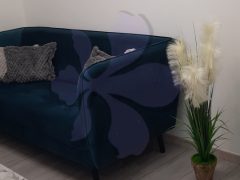The experience and impact of virtual art education were studied in the research of the Doctoral Program in Education and Culture of the UD, the joint art pedagogical research group of the Faculty of Music of University of Debrecen and the Foundation for the Art of the Future.
The corona virus epidemic also fundamentally transformed music education, and with the spread of computer technologies, digital infrastructure also appeared in art education. Trainings have been moved to the online space, creating new challenges and new opportunities. The research, launched last fall, aimed to map creative ideas, teacher motivation strategies to support student activity, and the issue how valuable online resources can be adapted to a modern arts education system.
The joint art pedagogical research group of the Doctoral Program in Education and Culture of the University of Debrecen, the Faculty of Music of UD and the Foundation for the Art of the Future began in November to study the experience in online arts education and the impact of distance learning among music teachers teaching in institutions of primary, secondary and higher education (individual music teachers of instrumental and vocal, private teachers, orchestra and chorus masters). Data collection lasted until March, and then the results were summarized by the end of June.
Researchers wanted to find out, among other things, whether music educators had familiarized themselves with the new online forms of performing art, to what extent these had replaced live art events, how the methodology of education had changed, what the advantages and limitations of online platforms were, what lessons can be drawn from online education and what methods are worth incorporating into the traditional teaching model.
“We’re dealing with an area we couldn’t imagine before.” Our research suggests that pre-pandemic conditions will not recover to the same extent, and art education may also shift towards a hybrid form of education. We wanted to assess how arts education can transition to a different system as a result of a shock. As it turned out, sensation and movement cannot be taught digitally, nor can an instrument be tuned online. Digital devices have been integrated into everyday work, helping with education, but it has been proven that live music online does not work due to the lack of appropriate technical conditions and sometimes unstable internet access, but pre-recorded music practices are all the more effective. This also developed students’ self-knowledge and critical ability. The biggest problem was holding group music sessions, as polyphonic sound could not be provided properly online. Thus, the community experience did not appear at all in digital art education – emphasized Judit Váradi, research leader, associate professor of the Faculty of Music.
The survey also revealed that due to the closure caused by the pandemic, instructors had a more complex task in addition to traditional music teaching.
– As a positive outcome, we experienced a minimal dropout rate in schools, which is largely due to the music teachers. Lockdown caused mental problems in both children and adults, but during music teaching, a closer relationship developed between the student and the teacher. This communication connection has remained online and has even become stronger. Many music teachers reported that children wanted everyday conversations badly, so it became necessary to deal with isolation, insecurity, frustration, and fear as well. Music teachers played a very important role in this as well, she added.
The eighteen-person strong research group of teachers, lecturers and artists conducted the survey with the help of online questionnaires with a total of more than 350 Hungarian and foreign heads of institutions and music teachers. Professional conclusions were drawn on the basis of the responses received.
Eight volumes of professional research were also prepared on the research, which included the most important results and topics. It is planned that the experience will be applied in the practice of online education in the future.
The research entitled “The Emergence of Online Space in Music Education and Concert Attendance” was supported by the Research Institute of Art Theory and Methodology of the Hungarian Academy of Arts.
hirek.unideb.hu









